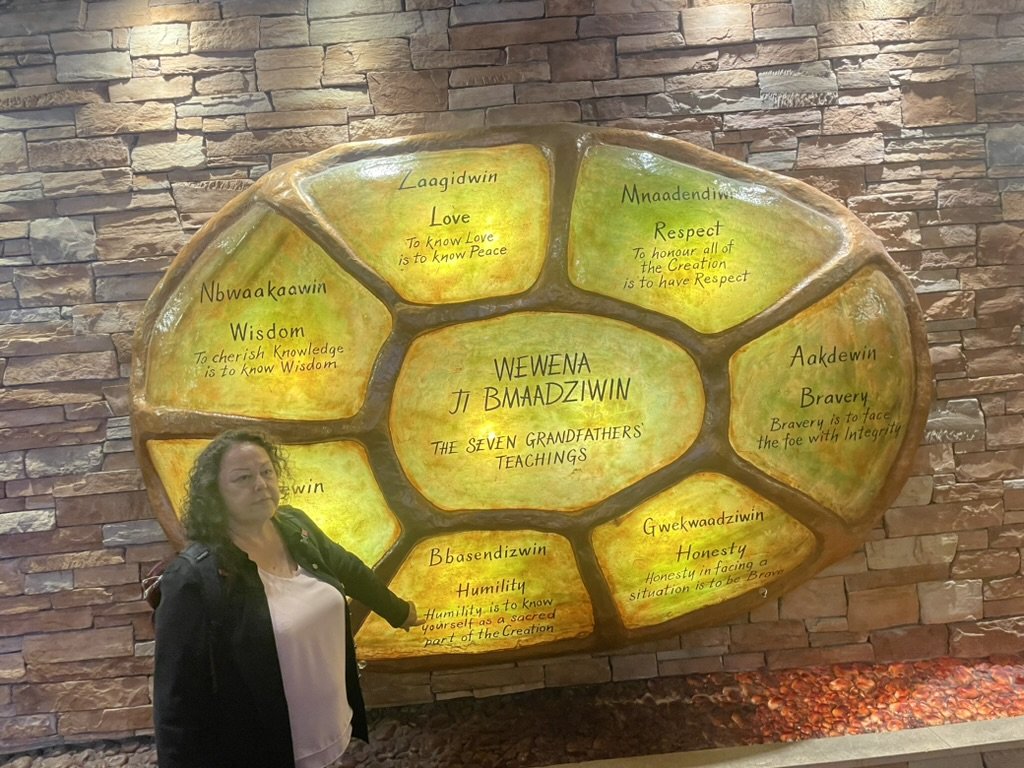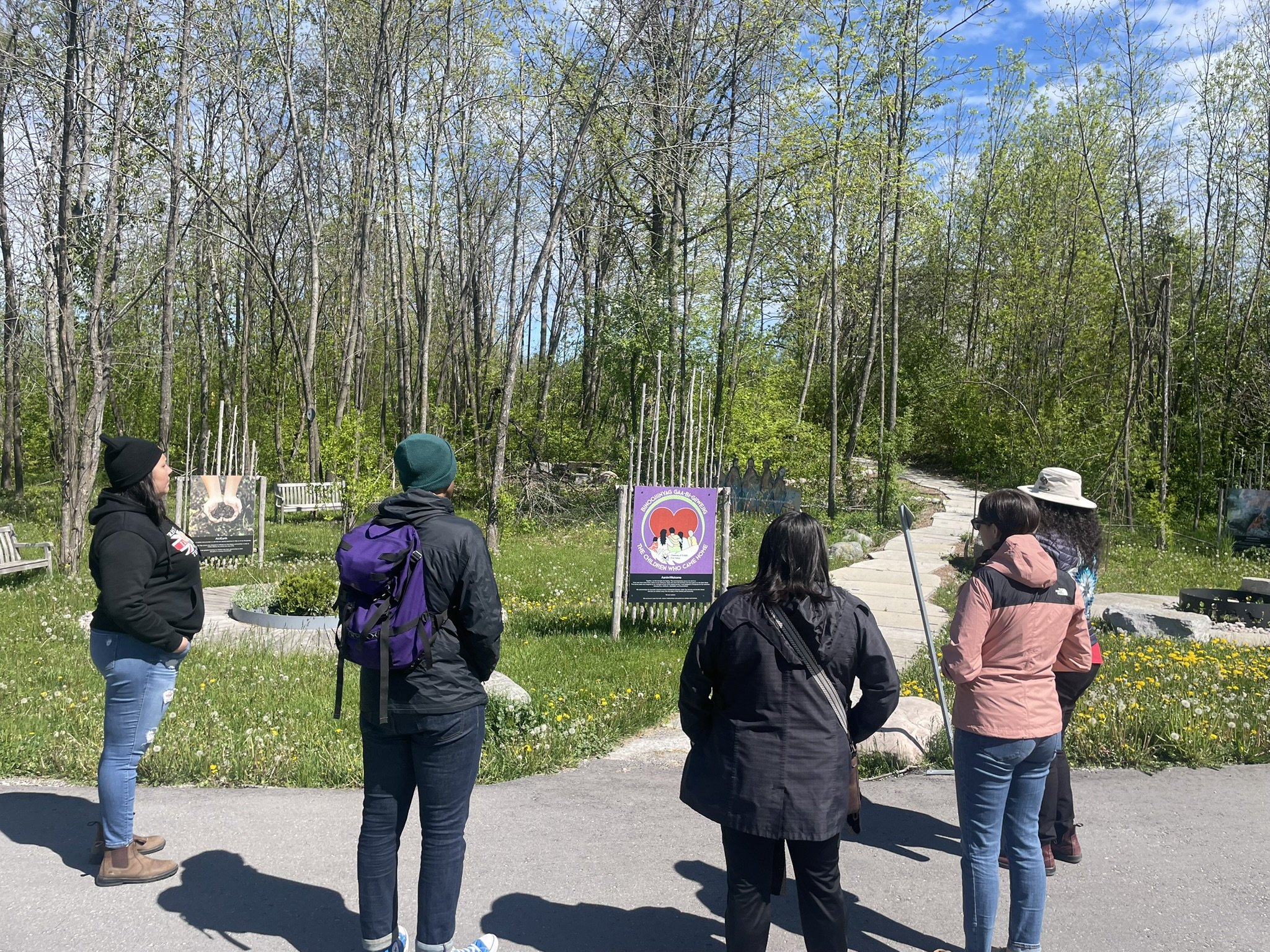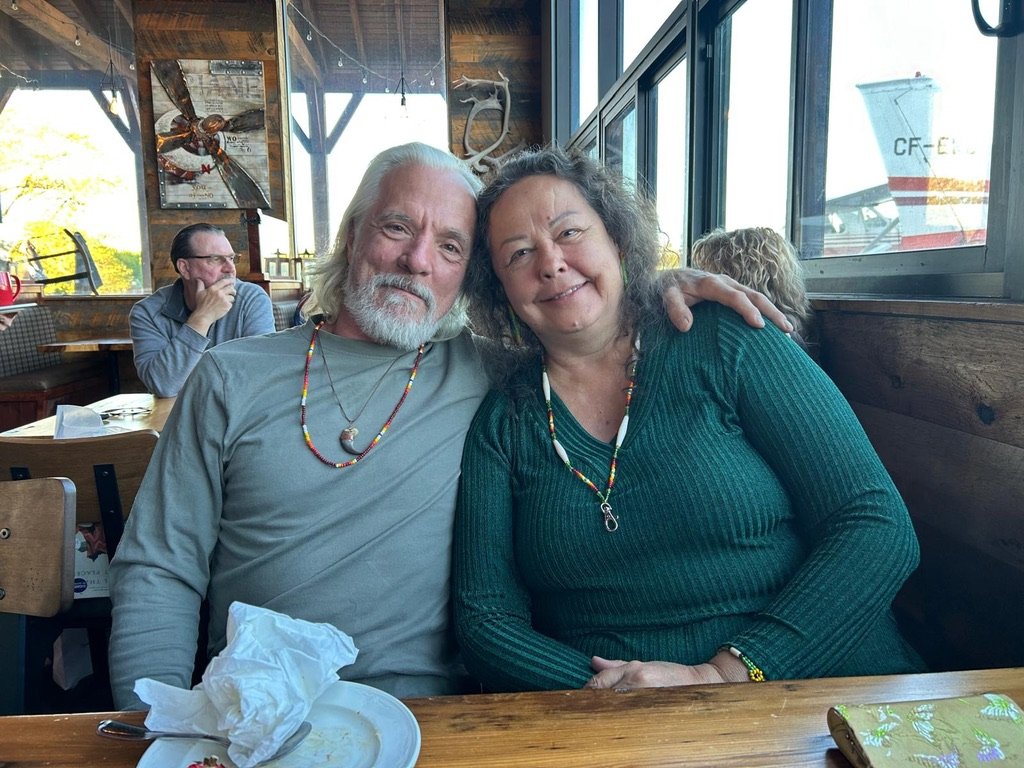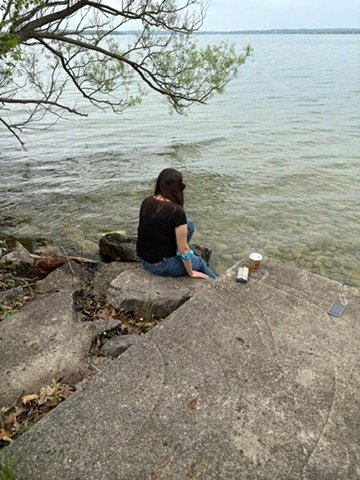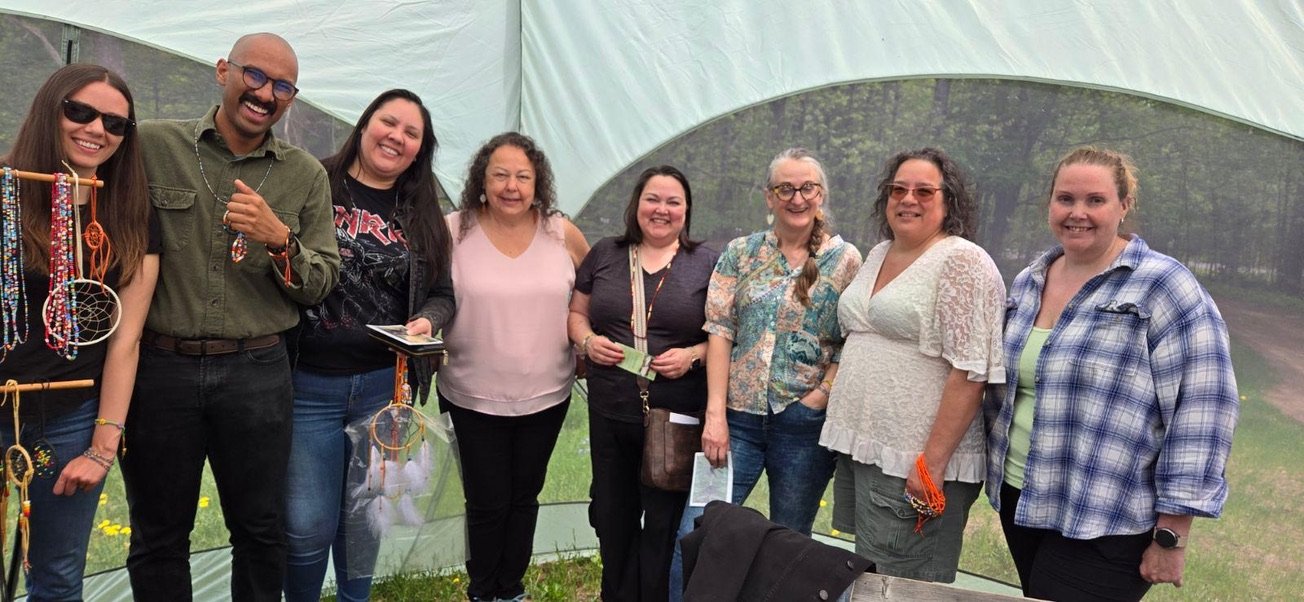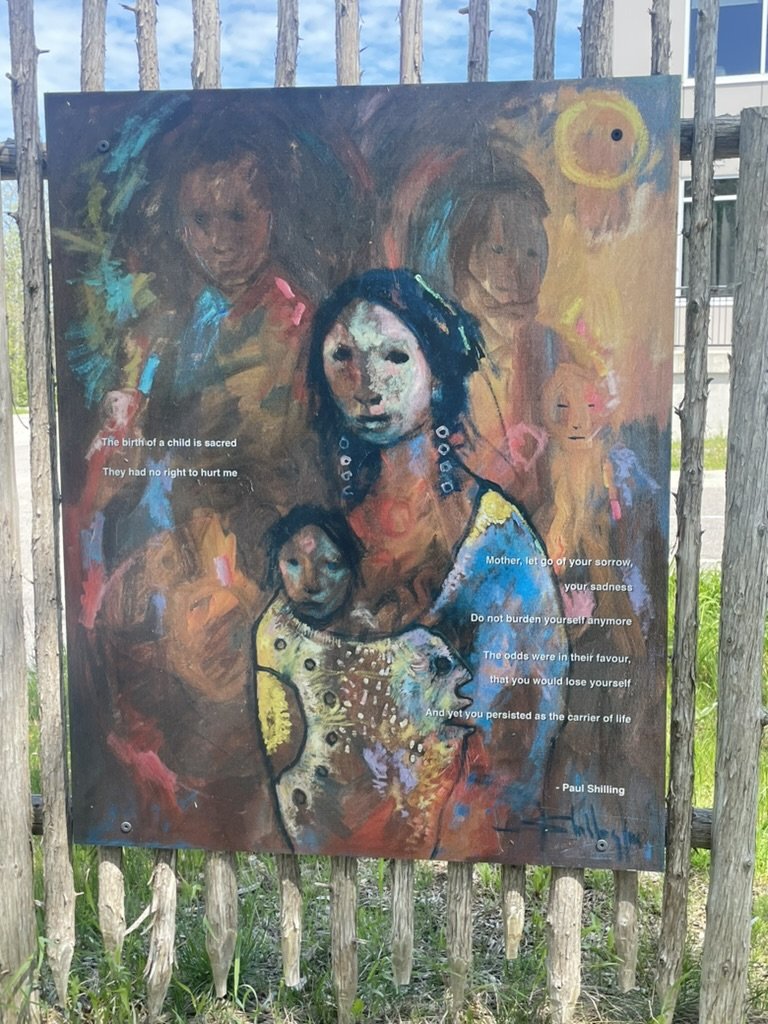Our First Gathering: Orillia, Ontario (May 2025)
Planting the Seeds of Relationship
Our work began in Orillia, where the core design team came together to explore how land-based teaching, vulnerability, and gratitude can transform learning spaces. Conversations focused on helping students move beyond guilt or apology-based understandings of Indigenous–settler history and toward relational, heart-centred connections with land and water.
Educators shared stories of classroom experiences—how children speak to wind, water, and flowers with ease, and how creativity, storytelling, and land art allow students to express deep gratitude and joy. Participants reflected on the need for learning that is experiential rather than product-driven, rooted in slowing down, noticing, and honouring the living world.
This first gathering set the foundation for the project’s guiding principles:
– Letting go of control and trusting process
– Honouring children’s natural connection to land
– Using story, movement, and ceremony as core pedagogical tools
– Understanding land acknowledgement as a practice of relationship, not a statement
A Living and Growing Bibliography
Resources rooted in story, land, and relationship
A core project deliverable is a collaborative bibliography designed to support educators in bringing land-based, culturally responsive teaching into classrooms. This bibliography includes children’s books, teaching guides, videos, songs, ceremony resources, and multimedia tools recommended by Indigenous educators across the project.
The bibliography continues to grow and will be shared widely with educators across Alberta through gatherings, teacher conventions, and public dissemination.
To access the live and evolving work, visit here.
Ongoing Online Gathering Spaces
Continuing the Circle
The project continues to offer regular online circles for:
– sharing classroom experiences
– building comfort with land-based learning
– co-developing land acknowledgement scenarios
– contributing resources and ideas
– continuing reflection and learning as a community
These virtual spaces allow teachers to refine practices, deepen understanding, and stay connected through shared learning—ensuring that the work remains relational, not transactional.
Participants consistently describe these gatherings as grounding, healing, and supportive—spaces where they can slow down, reconnect to land and themselves, and feel part of a growing network of educators committed to meaningful, relational change.
If you are a teacher and would like to be part of this emerging network, contact us at info@jhcentre.org.
Living in Relationship Through Land, Story, and Community
The Land Acknowledgement Project is a collaborative, evolving effort led by Indigenous educators, knowledge keepers, and community partners to deepen relationships with land, create culturally grounded teaching practices, and support teachers in transforming how land acknowledgements are taught, understood, and lived. Rooted in story, play, language, and reciprocity, this work moves beyond scripted statements into a living practice of gratitude and connection.
We are grateful to the support of the Edmonton Community Foundation and the CSMARI Anti-Hate program with the Department of Canadian Heritage for their support to this important project.
Living in Relationship: Three-Day Gathering in Edmonton (July 2025)
A Deepening of Connection
Our second gathering brought together teachers, Elders, and community members on Treaty 6 territory for three days of ceremony, storytelling, land walks, and Indigenous games. The gathering—Living in Relationship—invited educators into a deeper understanding of land as teacher and into practices that move beyond formula-based acknowledgements.
Highlights included:
Learning Through Story and Place: A visit to the Royal Alberta Museum offered profound teachings through the presence of Manitou Asinîy, the Sacred Stone—a reminder that land and all its beings hold spirit, memory, and teachings. Participants reflected on colonial histories, gratitude, and the responsibilities humans carry toward creation.
Land as a Living Teacher: Teachings at the kihcihkaw askî site emphasized that the land is alive and must be acknowledged just as we acknowledge one another. Children often model this naturally, speaking from the heart with sincerity adults must relearn.
Joy and Indigenous Games: Laughter-filled activities led by knowledge keeper Lyndon Suntjens reminded educators that learning can be embodied and joyous. These games carried teachings of humility, roles in community, and the importance of playful engagement.
Creative and Cultural Resources: Songs, stories, land art, and tactile tools complemented discussions on making land-based learning accessible, relational, and meaningful for students.
The gathering closed with commitments to authenticity, relational accountability, and ongoing collaboration across seasons.
Carrying the Work Forward
This project continues to evolve through the leadership of Indigenous educators, Elders, and community members. Together, we are building teaching practices rooted in gratitude, reciprocity, and relationship—with land, with each other, and with future generations.








